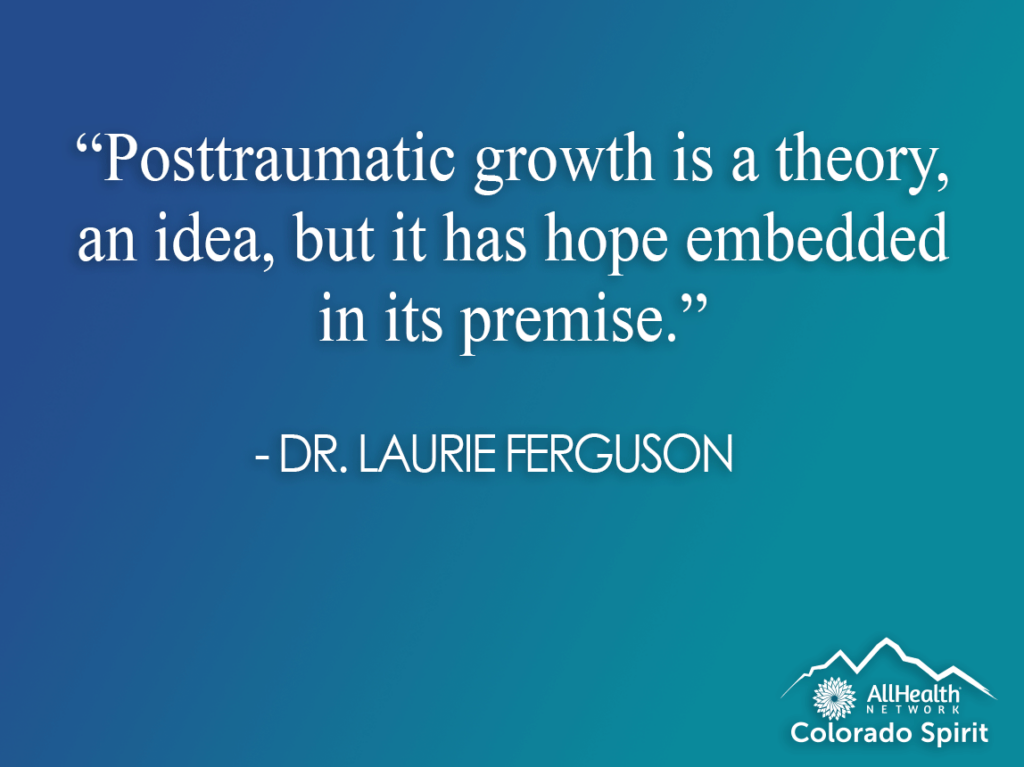Welcome to the Weekly Well-Being Connection! Each week we will share advice from our clinical experts on ways to care for your mental health and well-being throughout COVID-19.
Over the past few weeks I have been seeing a lot of different references to what things were like a year ago vs. now. I struggle a little with these pieces though. They can sometimes paint overly optimistic or pessimistic pictures. They can also promote a sense of how someone “should” feel at this point in the pandemic. Finally, they sometimes feel like someone is telling me to “just have hope and all will be ok.” As all my Colorado Spirit team members know, this “have hope” sentiment is one that can rile me up. We absolutely know that hope is a core part of resiliency. At the same time, attempts to push people to hopeful responses can make things worse (if you have not seen it yet, there is a great video of Brené Brown explaining why sympathy and “silverlining” things leads to disconnection). So a year into this pandemic, I find myself wondering, how can we support and amplify hope without resorting to simple reassurances or telling people how to feel?
I know there is not a perfect answer to this big question, but here is how the Colorado Spirit Team at AllHealth Network finds hope.
- Recovery is not linear. While the timelines on this graph from FEMA don’t fit a pandemic well, the concept that our individual and community experience is all over the place and not just a smooth upward line is accurate. For me, the takeaway is, I might feel pretty solid one day (or one hour) and then a short time later feel completely different. Not only is that “ok,” it is completely natural. That is how we as humans work!
- Whatever you are feeling right now is normal! No matter what your reaction is – sadness, joy, grief, loneliness, overwhelm, anger, relief – it is all completely understandable. The pandemic is what is abnormal.
- Most of us have heard of the fight or flight response to threats. There are a few other biologically hardwired responses too, including the friend response. We know there are lots of people out there who are jumping into official or unofficial helper roles to support their loved ones, friends, neighbors, and community. In my most cynical and overwhelmed moments, seeing the folks who keep showing up day in and day out and genuinely care about making a difference almost always helps me shift my mindset a bit.
- Post-traumatic growth is possible. After distressing and intense events, many people report growth in different areas. We may experience spiritual changes, a change in our relationships with others, or a shift in what is important to us and how we spend our time. This is not to minimize the struggle, pain, and destructiveness of our traumatic experiences; instead it is a reminder that out of these intense events, sometimes a shift or growth can occur. Dr. Laurie Ferguson offers five questions to reflect on that may inspire you to explore post-traumatic growth related to COVID-19.
- People have amazing resiliency and strength. When we feel maxed out, many of us find that a quick connection with a supportive other – whether it is a close friend, a helper, or even just a stranger we strike up a meaningful conversation with – can help us tap into our reserves.
We don’t share these messages to try to minimize the hardships and intensity many of us are living with right now, and, please know you are not alone. If speaking to someone would help, please reach out. AllHealth Network provides several supports.
Would speaking to someone help?
To speak with someone in the Colorado Spirit Program about stress related to the pandemic, please call 720-707-6789 or visit our web page at www.allhealthnetwork.org/Colorado-Spirit
For information about other services at AllHealth Network or to get connected with ongoing behavioral health support, please call: 303-730-8858.
AllHealth Network is continuing to provide service via telehealth or by phone and our Crisis Walk-in Center remains open 24/7. To learn more about what other community mental health centers are doing, please visit The Colorado Behavioral Health Council COVID-19 website.
If you are experiencing a mental health crisis and are in need of immediate assistance, please call the Colorado Crisis Hotline at 1-844-493-TALK (8255) or text TALK to 38255.


